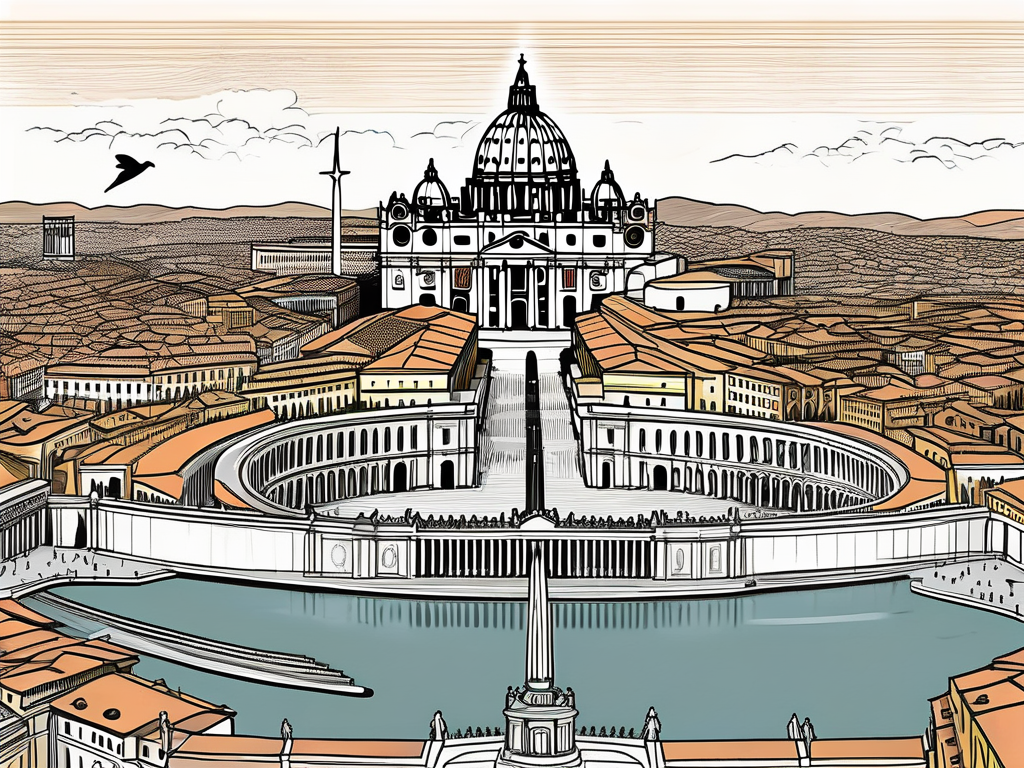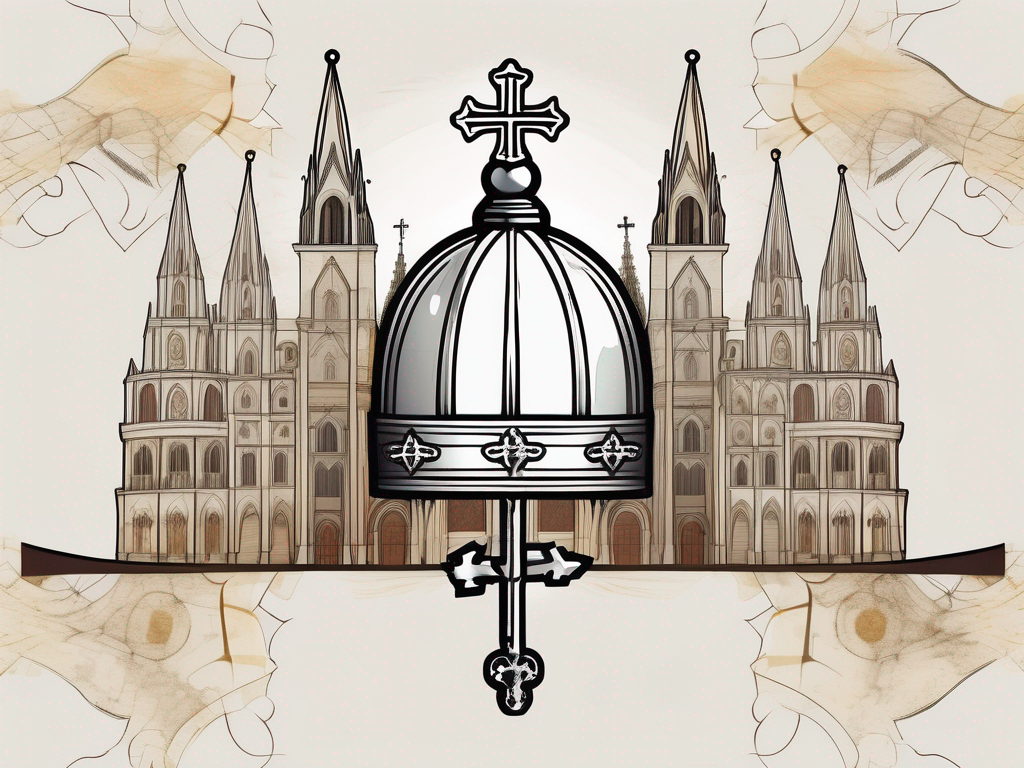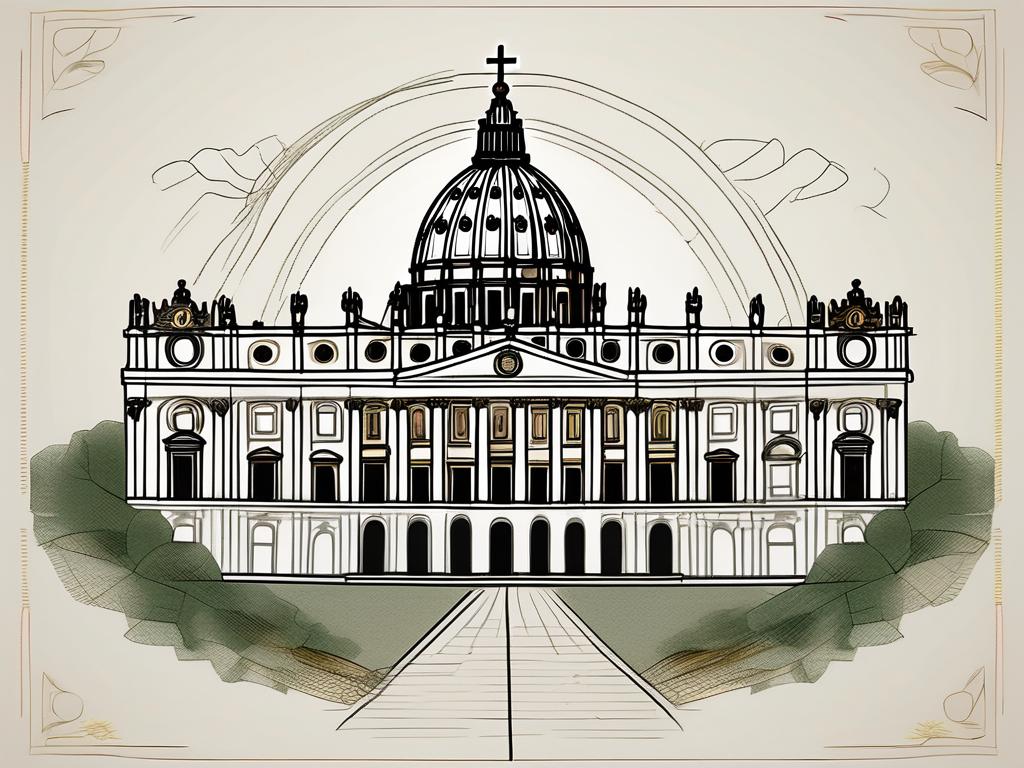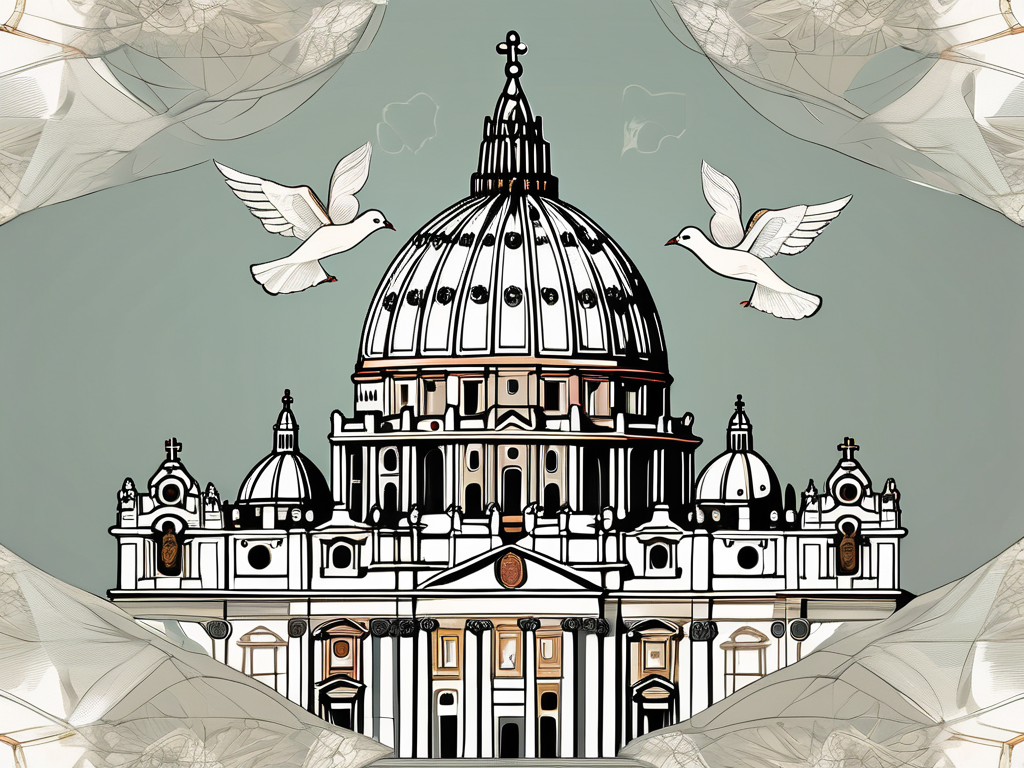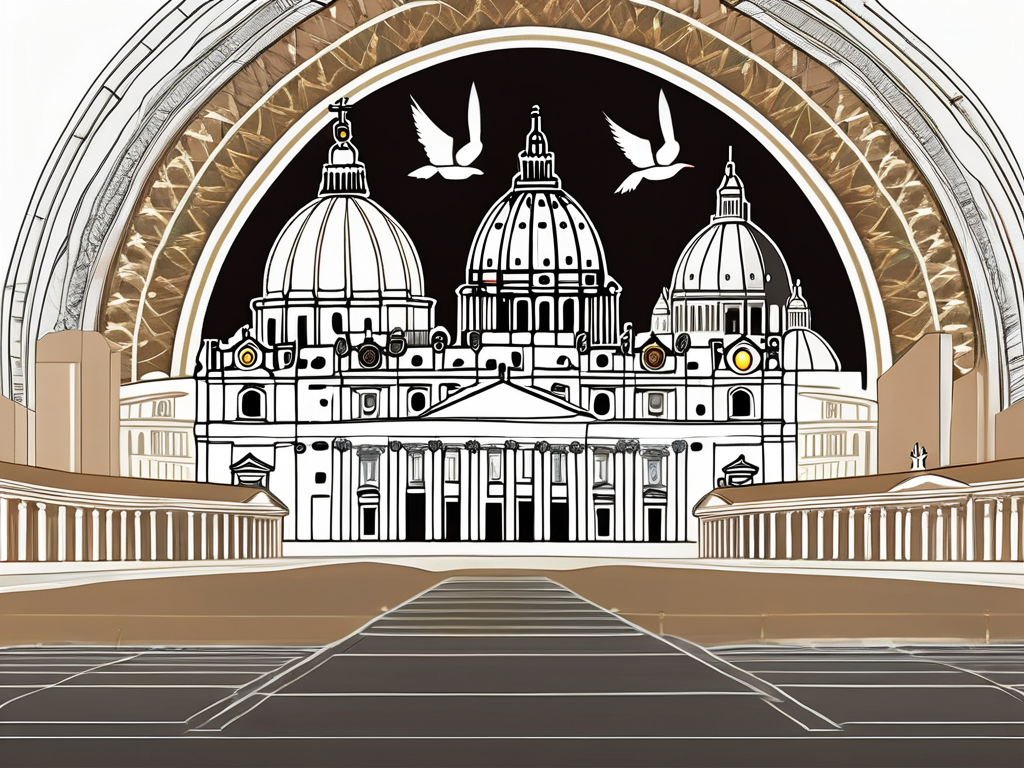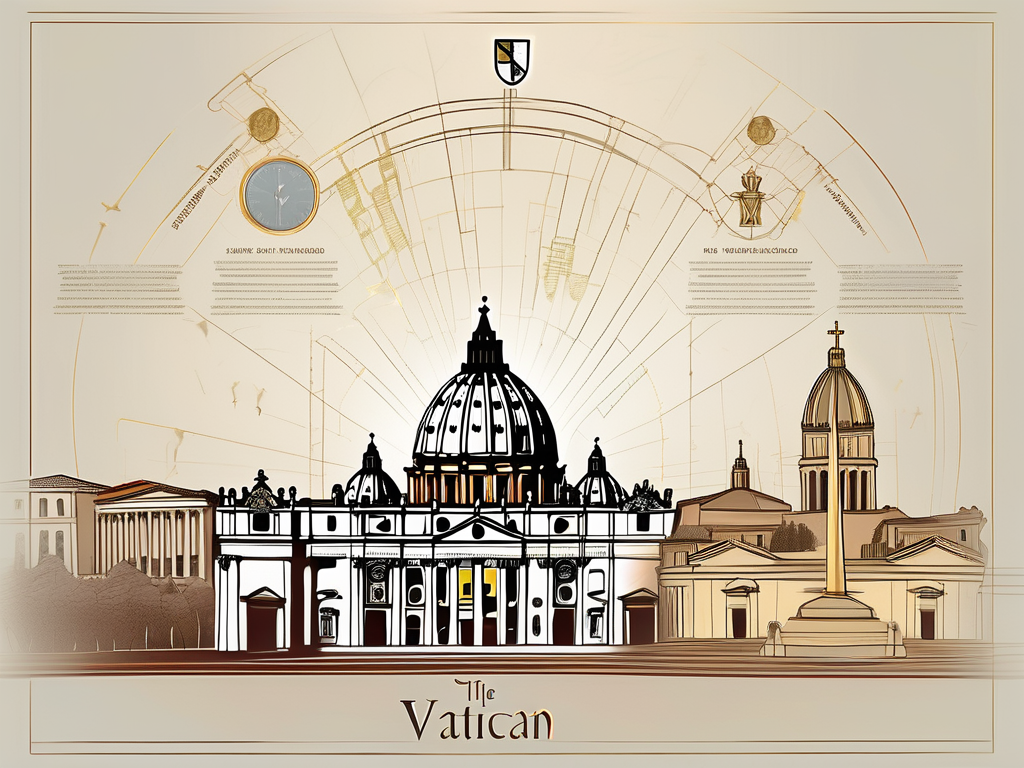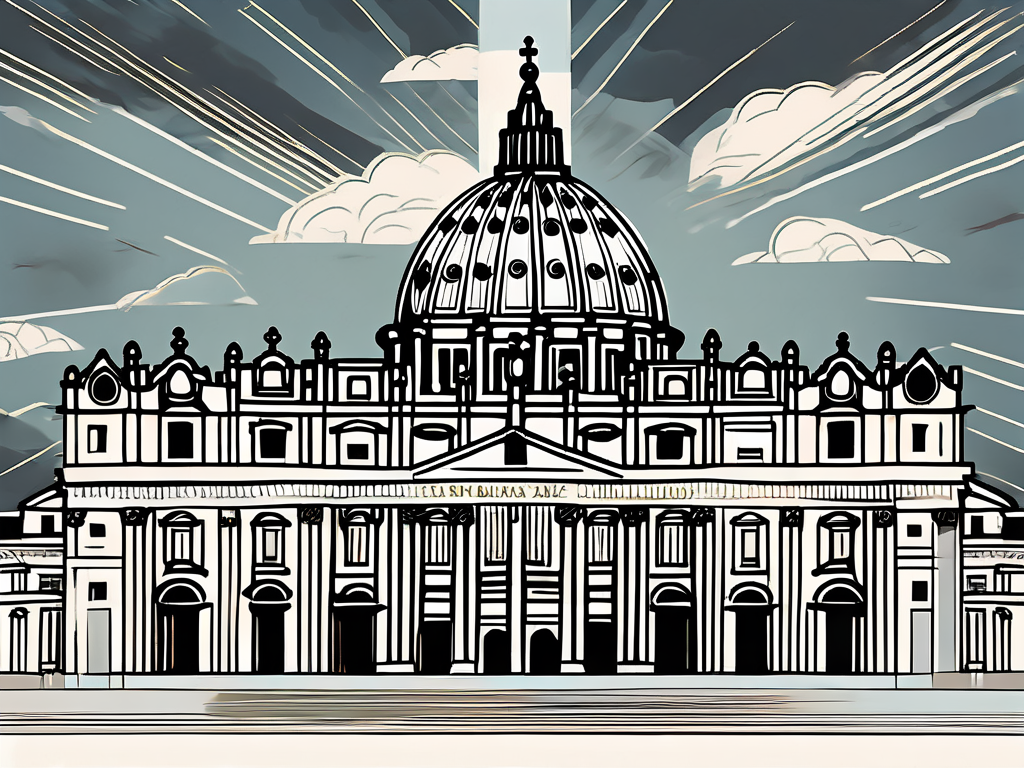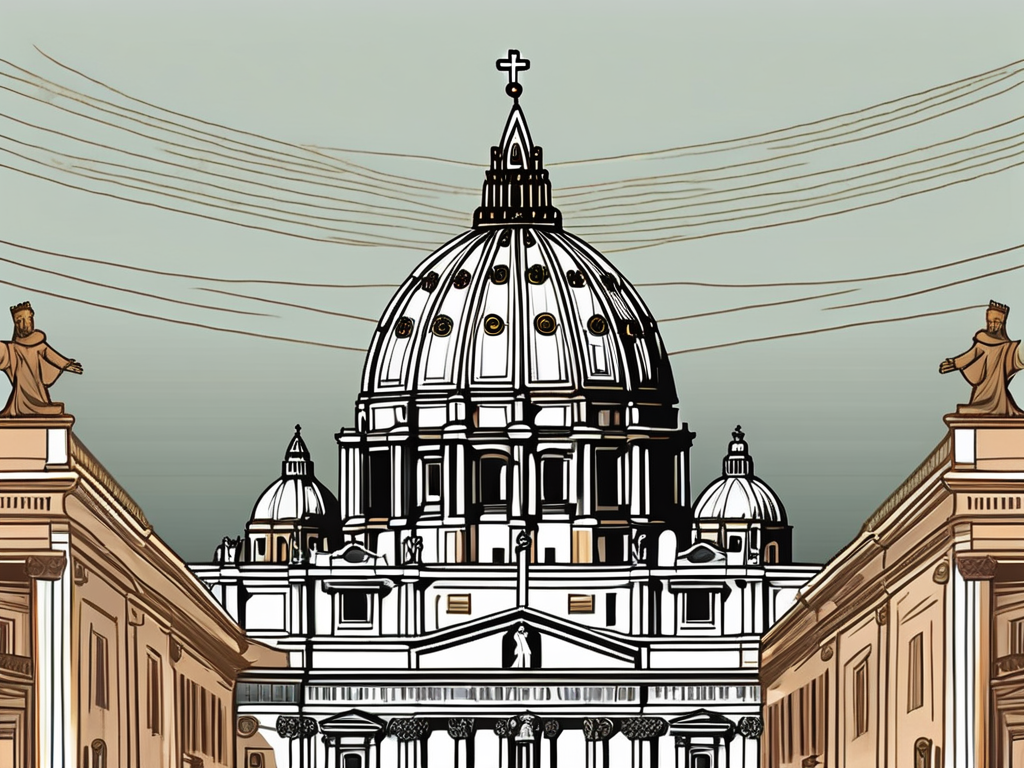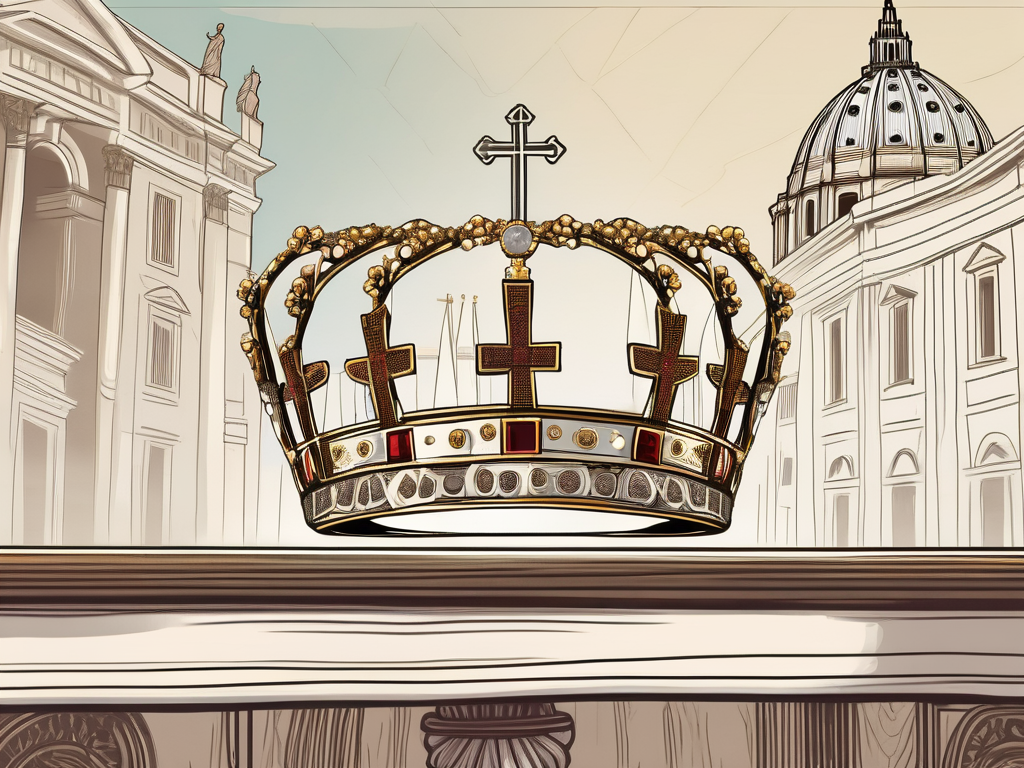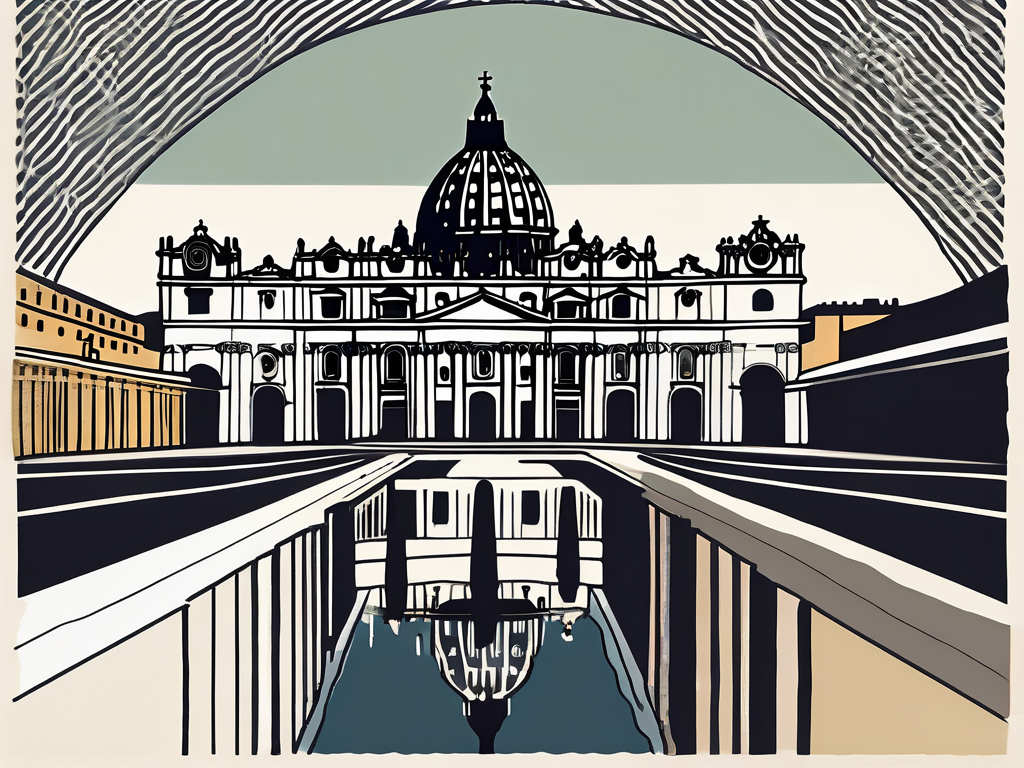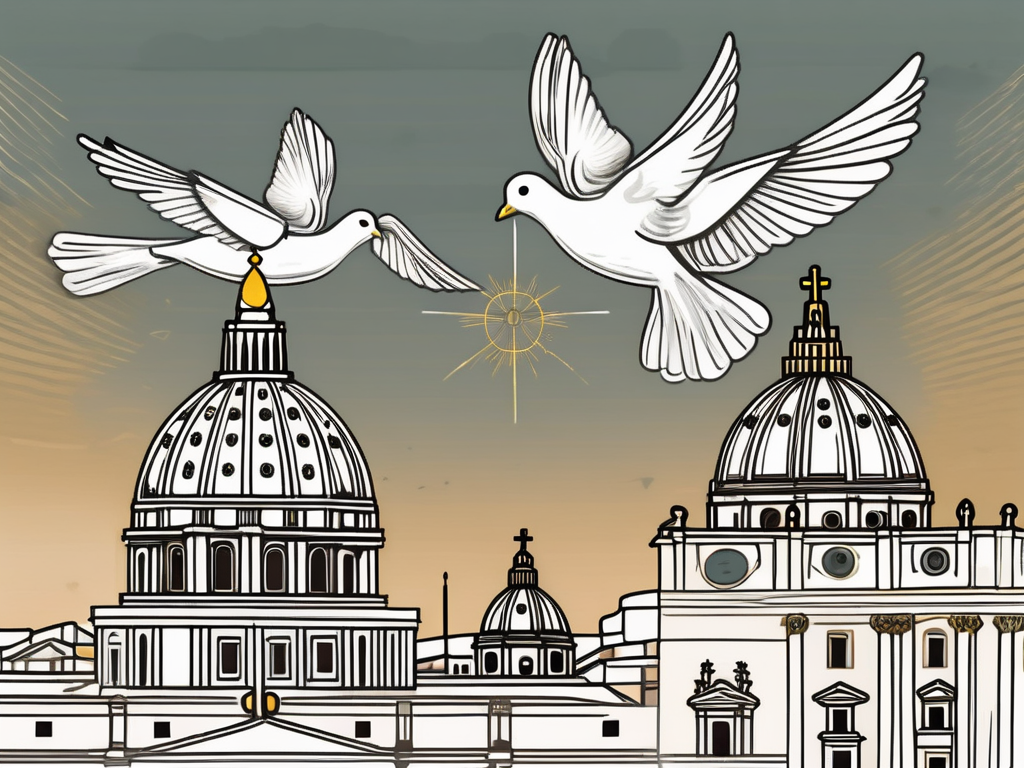Pope Innocent II, whose birth name was Gregorio Papareschi, was a prominent figure in the history of the Catholic Church. He lived during a time of great upheaval and controversy, and his papacy left a lasting impact on the institution. In this article, we’ll explore the early life and education of Pope Innocent II, his ascension to the papacy, his major contributions and reforms, the conflicts and controversies that marked his reign, as well as his death and succession.
Early Life and Education of Pope Innocent II
Birth and Family Background
Pope Innocent II, originally named Gregorio Papareschi, was born into a noble Roman family in the year 1096. His family background provided him with a solid foundation for success and influence. The Papareschi family, known for their deep connections to both political and religious circles, played a significant role in shaping the young Gregorio’s understanding of leadership.
From an early age, Gregorio was exposed to the intricacies of political and religious life. He witnessed firsthand the power struggles and diplomatic negotiations that took place within the Roman nobility. These experiences would later prove invaluable as he navigated the complex world of the Catholic Church.
Religious Education and Early Career
Gregorio Papareschi received a thorough religious education, studying theology and canon law. His family recognized the importance of a strong foundation in these areas, knowing that it would equip him with the necessary knowledge and skills to excel in the Catholic Church.
Under the guidance of renowned theologians and canon lawyers, Gregorio delved deep into the teachings of the Church. He studied the writings of early Church fathers, familiarizing himself with the rich history and traditions that shaped Catholicism. This rigorous education not only expanded his intellectual horizons but also instilled in him a deep sense of reverence for the Church’s teachings.
After completing his studies, Gregorio embarked on a career in the Church, eager to apply his newfound knowledge and contribute to the institution that had played such a significant role in his upbringing. He quickly rose through the ranks, serving in various positions of influence.
Gregorio’s early career in the Church was marked by his unwavering dedication to his duties. He immersed himself in the day-to-day affairs of the Church, diligently attending to the needs of the faithful and ensuring the smooth operation of religious institutions under his care. His commitment to his responsibilities earned him a reputation for reliability and competence, garnering the respect of his peers and superiors.
During this time, Gregorio also honed his diplomatic skills, recognizing the importance of building and maintaining relationships with influential figures within the Church. He became adept at navigating the intricate web of alliances and rivalries that characterized the ecclesiastical landscape.
As Gregorio’s reputation grew, so did his influence within the Church. His keen intellect and deep understanding of theology made him a sought-after advisor, and his insights were highly valued by his peers. His expertise in canon law also proved invaluable in resolving disputes and ensuring the fair application of Church doctrine.
Gregorio’s early career laid the groundwork for his future as Pope Innocent II. The knowledge, skills, and experiences he gained during this formative period would shape his leadership style and guide his decisions as he ascended to the highest office in the Catholic Church.
Ascension to Papacy
In 1130, Gregorio Papareschi, a prominent figure in the Catholic Church, was elected as Pope Innocent II. His ascension to the papacy marked a significant turning point in the history of the Church. However, this momentous event was not without controversy, as a rival candidate, Anacletus II, also claimed the papal throne. This led to a schism within the Catholic Church, creating a challenging and tumultuous period for Pope Innocent II.
The election of Pope Innocent II was a pivotal moment that tested his leadership and resolve. He faced the daunting task of unifying a divided Church and asserting his authority as the rightful Pope. The dispute with Anacletus II created a tense and uncertain atmosphere, with both candidates vying for the support of influential figures within the Church.
Election and Controversies
The election of Pope Innocent II in 1130 was a highly contested affair. The College of Cardinals, responsible for electing the Pope, was divided in its support for the two candidates. The supporters of Gregorio Papareschi, who would become Pope Innocent II, argued for his legitimacy based on his qualifications and dedication to the Church. On the other hand, Anacletus II’s supporters claimed that he had a stronger claim to the papal throne, creating a heated and divisive debate within the Catholic Church.
The controversy surrounding the papal election had far-reaching consequences. It not only divided the Church but also had political implications, as various rulers and factions sought to align themselves with one of the candidates. This further complicated the situation and added to the challenges faced by Pope Innocent II.
Challenges and Triumphs
During his papacy, Pope Innocent II encountered numerous challenges, both internally and externally. One of the most significant challenges was the schism within the Catholic Church caused by the rival claims to the papal throne. This schism threatened to undermine the unity and authority of the Church, as different factions aligned themselves with either Pope Innocent II or Anacletus II.
Despite these challenges, Pope Innocent II demonstrated remarkable leadership and resolve. He skillfully navigated through political conflicts, forging alliances and seeking diplomatic solutions to restore unity within the Church. His commitment to reforming the Church and upholding its teachings earned him respect and admiration from many, even among those who initially supported Anacletus II.
Pope Innocent II’s triumphs extended beyond the internal conflicts of the Church. He also faced external challenges, such as conflicts with secular rulers and the ongoing struggle for control over territories. Through his diplomatic skills and unwavering dedication to the Church, Pope Innocent II successfully asserted the authority of the papacy and solidified its position as a powerful institution.
The papacy of Innocent II was a period of great significance and transformation for the Catholic Church. His leadership and ability to navigate through turbulent times left a lasting impact on the Church and its future trajectory. The challenges he faced and the triumphs he achieved serve as a testament to the resilience and strength of the papacy during this era.
Major Contributions and Reforms
Pope Innocent II is remembered for his significant contributions and reforms during his papacy. His efforts to reform the Catholic Church had a lasting impact on the institution and its followers.
Church Reforms and Decrees
One of Pope Innocent II’s most notable achievements was his implementation of stricter discipline among the clergy. Recognizing the importance of moral conduct and integrity, he emphasized the need for priests and other religious figures to lead by example. Through his leadership, Pope Innocent II sought to restore the Church’s reputation and inspire greater devotion among its members.
In addition to his focus on moral conduct, Pope Innocent II also issued decrees to address issues of corruption and abuse of power within the Church. These decrees aimed to hold individuals accountable for their actions and ensure that the Church operated with transparency and fairness. By taking a firm stance against corruption, Pope Innocent II sought to restore the trust of the faithful and strengthen the Church’s moral authority.
Diplomatic Missions and Relations
Pope Innocent II recognized the importance of diplomacy in maintaining and expanding the influence of the Catholic Church. He engaged in various diplomatic missions, seeking to strengthen the Church’s relationships with political leaders and other religious institutions.
Through these diplomatic efforts, Pope Innocent II fostered greater cooperation and understanding among different religious and political factions. By promoting dialogue and peaceful resolution of conflicts, he played a crucial role in promoting peace and stability in the region.
Pope Innocent II’s commitment to diplomacy extended beyond the borders of the Catholic Church. He actively sought to build bridges with leaders of other faiths, recognizing the value of interfaith dialogue and cooperation. His efforts to establish positive relations with leaders of different religious backgrounds contributed to a more inclusive and tolerant society.
In conclusion, Pope Innocent II’s major contributions and reforms had a profound impact on the Catholic Church and its relations with the wider world. His emphasis on moral conduct and integrity within the clergy, as well as his diplomatic efforts, left a lasting legacy of positive change and progress.
Conflict and Controversy during Papacy
Disputes with Political Leaders
Like many popes before him, Pope Innocent II faced conflicts with powerful political leaders of his time. His strong stance on the autonomy of the papacy often clashed with the ambitions of secular rulers. However, he skillfully managed these contentious relationships and worked towards peaceful resolutions.
Internal Church Conflicts
Pope Innocent II also had to tackle internal conflicts within the Church. The schism that emerged during his election as pope created divisions among clergy and laypeople. He tirelessly worked towards reconciliation, promoting unity and a shared sense of purpose among the faithful.
Death and Succession
Final Years and Death
In his final years, Pope Innocent II continued to lead the Catholic Church with dedication and wisdom. His progressive vision and commitment to reform earned him respect and admiration throughout his papacy. Sadly, he passed away on September 24, 1143, leaving behind a legacy that would endure for centuries.
Legacy and Succession
Pope Innocent II’s legacy resonates through the annals of history. His contributions to the Church’s reformation efforts set a precedent for future popes and shaped the course of Catholicism. Following his death, Pope Celestine II succeeded him, continuing the work initiated by Pope Innocent II and building upon his achievements.
In conclusion, Pope Innocent II’s life and papacy were marked by both triumphs and challenges. His commitment to reforming the Catholic Church and upholding its principles left an indelible mark on the institution. Despite the controversies and conflicts he faced during his reign, Pope Innocent II’s legacy endures, reminding us of the importance of leadership, diplomacy, and moral integrity.
